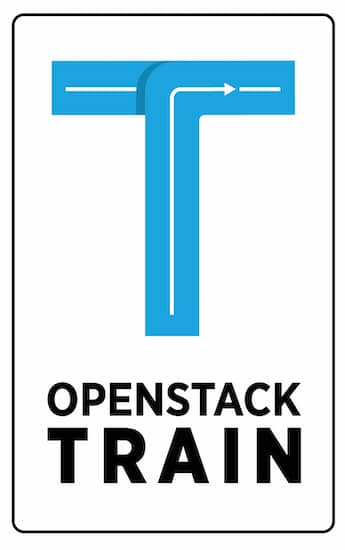Today the OpenStack Foundation released their 20th version since their initial release in 2010. Continuing their tradition of short but colorful, alphabetical names, the new release is named Train (as in always on time). The past two releases were Stein and Rocky respectively. Some of the highlights of Train, in addition to more Artificial Intelligence and Machine Learning (AI/ML) support, are improved resource management and enhanced security. The OpenStack Foundation is, as the name suggests, an open-source software community, and is supported by over five hundred companies.

The biggest gain in Artificial Intelligence and Machine Learning (AI/ML) support from the Train releases comes from the inclusion APIs allowing for intelligent interaction between the Nova (compute service) and Cyborg (accelerator life cycle management) modules of the platform. The new APIs provide a blueprint for launching and managing VMs with access to hardware accelerators like FPGAs and GPUs. Train also includes both new and improved drivers for those hardware accelerators. Interestingly, The Nova module is also getting an upgrade to its scheduler to help ensure that tasks are only aside to nodes with the best hardware and software for that task which should improve the efficiency of the system. All of these improvements are easier to use than ever before, as the Train release comes with much better documentation than previous releases.
The train release boasts some huge gains in improved resource management. In addition to the scheduler improvements discussed above, Train has a much-improved service to track cloud resource inventories and usages which reduced service response times from 17 seconds to under a second. A truly phenomenal order of magnitude improvement. The new release also comes with a node resource consolidation strategy to help reduce the resource usage for multi-tenant OpenStack-based clouds. In true open-source fashion, many of the improved modules also have new or improved APIs giving users greater control.
Improved data protection and security comes from three major upgrades. The first is courtesy of CERN, who led the development of software raid features to protect against individual drive failure or corruption. The second is from yet another upgrade to the Nova module, this one in the form of hardware-based encryption of VM guest memory to protect against both external and internal attacks. The third and final security upgrade is the ability to image and backup boot servers with data stored on the root disk.




 Amazon
Amazon